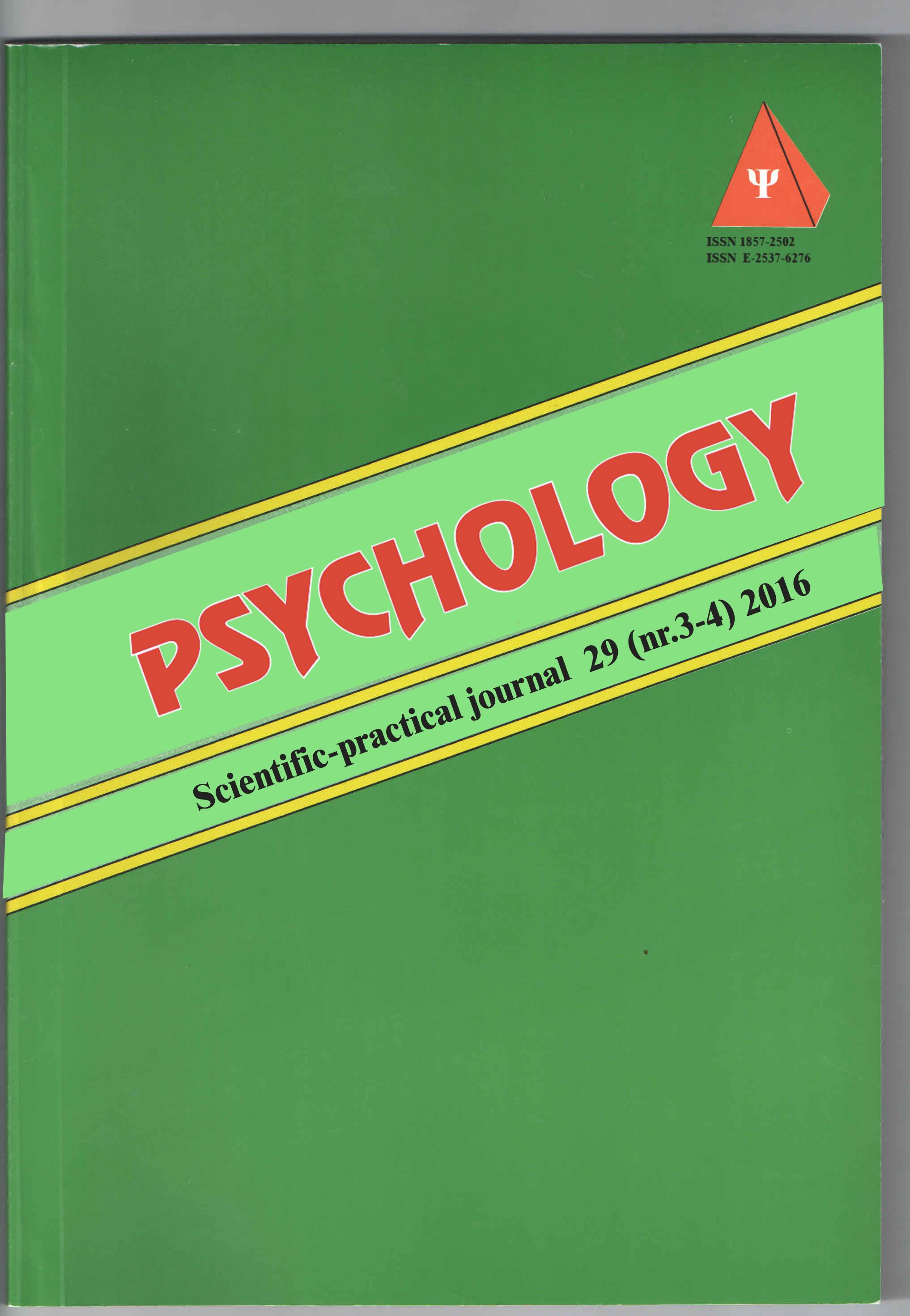DIFERENŢE SPECIFICE ŞI SIMILITUDINI DE GENDER ÎN MANIFESTAREA ŞI DEPĂŞIREA TULBURĂRII POSTTRAUMATICE DE STRES
GENDER SPECIFIC DIFFERENCES AND SIMILARITIES OF POSTTRAUMATIC STRESS DISORDER MANIFESTATION AND OVERCOMING
Keyword, Summary
Contributor(s): Mariana Batog (Editor)Subject(s): Social Sciences
Published by: Asociaţia Psihologilor practicieni din Moldova
Keywords: posttraumatic stress disorder; gender differences of PTS D; externalizing symptoms; internalizing symptoms; gender similarities of PTS D
Summary/Abstract: Posttraumatic stress disorder (PTSD) designates a consequence of a major psychological trauma produced by a collision with a situation of extreme stress, being characteristic for both female and male. The statistics confirm that in society are in ascendancy: the number of cases of domestic violence, crimes against family, road accidents,fires and natural, technogenic and social-biological emergencies etc. The escalating extreme stress situations involve the need and the topicality of performing studies with the purpose of researching the resulted consequences and methods of prediction and psychological rehabilitation of the persons involved. In this paper we tend to present an analysis of posttraumatic stress disorder (PTSD) with its specific manifestations at women and men. In this context we highlight: extremely stressful situations that can cause PTSD at women and specific situations of extreme stress for men, gender differences and similarities, installation and development of PTSD. Next, we come to deal with empirical studies to prove and explain these differences, to analyze the relevant factors that affect the occurrence of posttraumatic stress, factors that may promote the psycho trauma recovery. Also, we tend to examine some aspects of manifestation of PTSD at children, to determine gender differences and similarities, but also in comparison with mature people. At the end of this article we refer to ways of resolving psychological problems related to traumatic stress. In conclusion, we would like to propose some appropriate recommendations of PTSD overcoming.
Journal: Psihologie, Revistă ştiinţifico-practică
- Issue Year: 23/2013
- Issue No: 4
- Page Range: 77-84
- Page Count: 8
- Language: Romanian

